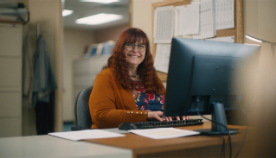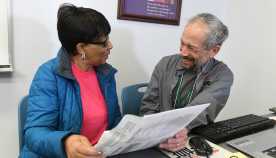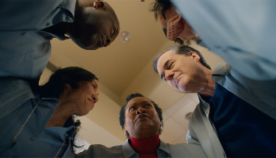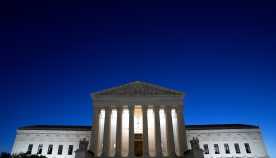About Us
Facebook, Inc. v. Duguid,
No. 19-511,
926 F.3d 1146 (9th Cir. 2019),
cert. granted, 2020 WL 3865252 (U.S. July 9, 2020).


You have the power to change the lives of seniors in poverty
1 in 3 older adults struggle to meet their basic needs. Your gift can help seniors secure good jobs, get the benefits they've earned, and stay connected to their communities.
Oral argument scheduled for Dec. 8, 2020.
Issue: Whether the definition of an “automatic telephone dialing system” in the Telephone and Consumer Protection Act of 1991 encompasses any device that can “store” and “automatically dial” telephone numbers, even if the device does not “us[e] a random or sequential number generator.”
Noah Duguid does not use Facebook and never gave the company his cell phone number. Nevertheless, he received multiple text messages from Facebook informing him that an unknown device had accessed his account. After several unsuccessful attempts to stop these texts, Duguid filed a class-action lawsuit against Facebook for violating the Telephone Consumer Protection Act (TCPA).


















